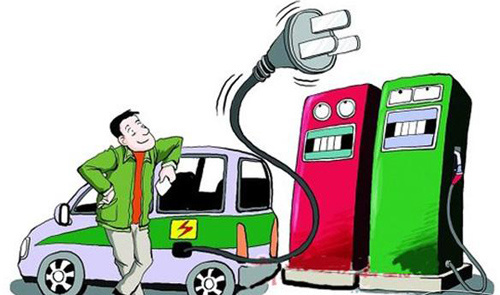
(Ecns.cn)--China has promoted new energy vehicles in an effort to reduce dependency on oil and strengthen energy security, but so far the market has been far from encouraging.
Statistics from the China Association of Automobile Manufacturers show that by 2011, sales of motor vehicles reached a volume of 18.51 million, but less than 10,000 of those were new energy vehicles.
Only 1,830 electric cars and less than 1,500 hybrid power automobiles sold during the first quarter of this year.
China currently has 200 million vehicles on its roads, including 90 million cars, and the number is rising.
Data show that China's auto industry has eaten up 60 percent of the country's oil. The proportion is expected to grow to 93 percent by 2030, equivalent to 328 million tons. By 2050, the situation may improve a little, but 425 million tons of oil will still be needed, accounting for 88 percent of the total.
British Petroleum estimates that China's dependence on imported oil will increase from the current 60 percent to 77 percent in 2020, resulting in economic losses of $79.8 billion.
Zhang Tianshu, a researcher at the Center for Global New Energy Strategy Studies, told Time Weekly that compared to the U.S., China must make greater efforts to ensure its energy security.
"Before 1993, the United States was a net oil importer, whereas China was a net exporter," said Zhang. "Now, America's dependence on imported oil has dropped to 45 percent. That percentage will keep falling with its 'shale gas revolution.' By 2030, roughly 80 percent of China's oil will be imported, much higher than the U.S., which, according to optimistic estimates, only needs to buy 35 percent from foreign countries."
"Saving resources and finding alternative energy sources are strategically important to China," said Jin Baisong, a researcher at the Chinese Academy of International Trade and Economic Cooperation under the Ministry of Commerce.
Compared to the dismal showing of electric cars, battery-powered bicycles and motorcycles are increasingly popular in China. According to the Chinese Cycling Association, China now has 140 million electric bikes, with sales of about 30 million last year, up 18.2 percent from 2010.
"Nowadays, electric bikes are almost on par with motorcycles, with a speed of 65 km per hour," said Zhang Tianshu. "Before, such bikes could go 35-40 kilometers at most (at a speed of 40 km per hour). Now, they can travel as far as 110-120 kilometers."
Jin Baisong said that China's gloomy new-energy vehicle market may have a bright future if electric bikes, motorcycles and scooters are all promoted as new energy vehicles.
To create a bullish market for such products, the "government should draw up specific traffic laws and technical and safety standards," said Jin. "Simply-equipped vehicles, including electric motorcycles and mini cars, should be allowed to run on city roads."
"Cheap electric transportation tools will gain more popularity among Chinese consumers who are not seeking high-level products," Jin added.
Besides electricity, "there are many more alternatives to oil, such as natural gas, methanol and ethanol," said Zhang Tianshu. "China's proven reserves of high-sulfur poor-quality coal are around 230 billion tons, 10 percent of which can produce 12.9 billion tons of methanol. As much as 8.6 billion tons of oil can be saved, a quantity that can support China's car industry for decades."
In March this year, the Ministry of Industry and Information Technology decided to promote methanol-powered cars in three pilot areas—Shanghai and the provinces of Shanxi and Shaanxi.
Zhang pointed out the potential for cooperation with Israel, which is carrying out similar trials.
Dr. Zhao Hongtu, a professor at the China Institute of Contemporary International Relations, said that China can also adopt Israel's advanced technology in solar energy development.

Copyright ©1999-2011 Chinanews.com. All rights reserved.
Reproduction in whole or in part without permission is prohibited.